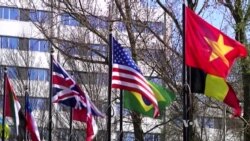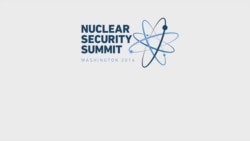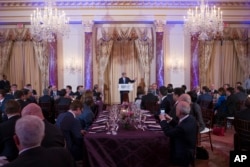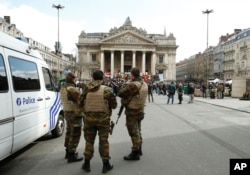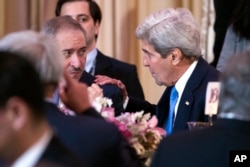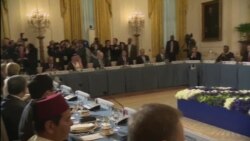U.S. President Barack Obama will speak Friday at the end of the second and final day of the nuclear security summit here attended by world leaders.
The U.S. leader said Thursday, from the summit's sidelines, that in the wake of attacks in Brussels and elsewhere, there is "not only great urgency around the nuclear issue, but eliminating generally the scourge of terrorism."
Obama's fourth and final nuclear summit has come at a time of heightened concern about the possibility that Islamic State militants could set off radioactive bombs, and also about North Korea's nuclear weapons development.
Some of the world leaders who attended a White House summit dinner Thursday were from countries that have been directly impacted by terrorist attacks.
At a State Department ministerial level dinner, U.S. Secretary of State John Kerry said nuclear security progress at times has been slow, and there remains an "enormous amount more to do."
"But every step forward that we take is a step away from danger," he added.
Earlier Thursday, Obama held a series of meetings with leaders hours before news that North Korea had test-fired another suspected ballistic missile.
He met with South Korean President Park Geun-hye and Japanese Prime Minister Shinzo Abe to discuss the North Korean threat in the wake of Pyongyang's January nuclear test and a long-range missile launch in February.
Pyongyang was also among the focal points when Obama sat down later with Chinese President Xi Jinping.
"We want to enhance communication and coordination on the Korean nuclear issue and other regional and global issues," Xi said at the top of the talks.
Washington views Beijing, Pyongyang's ally, as key in enforcing U.N. sanctions against North Korea for its weapons development.
In a later meeting, Obama praised French President Francois Hollande for "galvanizing the European community" in the fight against terror. The president will also hold a bilateral talks with Turkey's President Recep Tayyip Erdogan.
In a Washington Post opinion article, Obama said world powers would address threats posed by terrorist groups such as Islamic State.
"We will join allies and partners in reviewing our counterterrorism efforts, to prevent the world’s most dangerous networks from obtaining the world’s most dangerous weapons," Obama said.
Brussels attacks
The U.S. and other world powers may be experiencing a heightened sense of urgency in securing nuclear material and sites from terrorists, following the March 22 attacks in Brussels.
News reports have said two brothers linked to the attacks were part of a plot to gain information about a Belgian nuclear facility.
"We know that terrorist organizations have the desire to get access to these raw materials and their desire to have a nuclear device," said White House foreign policy aide Ben Rhodes.
One U.S. lawmaker, Representative Ed Royce, a California Republican who is chairman of the House Foreign Affairs Committee, said, "We should assume terrorists will continue to seek out the weakest links at nuclear facilities around the globe."
World leaders are also concerned about the security of nuclear materials and facilities in countries such as nuclear-armed Pakistan, where a terrorist attack in Lahore on Easter Sunday killed more than 70 people.
While progress has been made since the first summit in 2010, "the overall objective of securing the most vulnerable nuclear materials in four years … I don't think has been achieved," said Sharon Squassoni with the Center for Strategic and International Studies.
"There is still material out there and the material that we're talking about is highly enriched uranium," she said.
International framework
Experts say security gaps remain for several reasons: There still is no international framework to monitor nuclear materials; some countries are unwilling to open up supplies intended for commercial use; and some militaries have been unable to agree on how to deal with their nuclear material.
"If you wanted to cause a nuclear incident, you might look for the country with the most vulnerable reactors," said James Andrew Lewis, head of the strategic technologies program at the center.
As the summit got underway, the White House released a statement saying the U.S. had declassified and released data on the national inventory of highly enriched uranium. It said inventories decreased from about 741 to 586 metric tons between 1996 and 2013.
VOA White House correspondent Mary Alice Salinas and Ken Bredemeier contributed to this report.
